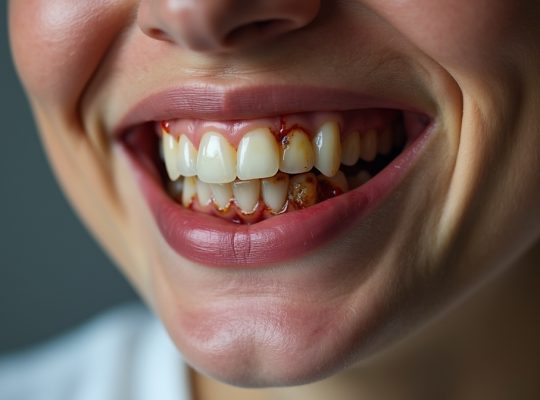When you walk into a store, it’s easy to feel overwhelmed by the endless rows of dental products. There’s toothpaste, mouthwash, floss, electric toothbrushes, and much more. It’s not hard to wonder how you can figure out what will actually work for you. Choosing the right dental products isn’t just about picking the most popular brand. It’s about understanding your specific needs, whether you have sensitive teeth, a certain gum condition, or want to improve your overall dental hygiene. Finding the right products doesn’t have to be confusing. With the right information, you can make choices that benefit your long-term oral health.
Understand Your Dental Needs
Before you grab the first product you see, it’s important to understand what your teeth and gums need. Not every dental product is right for everyone, and that’s okay. You might need a product for sensitive teeth, whitening, or even gum health. Identifying your specific needs can help narrow down your choices.
Sensitive Teeth
If your teeth are sensitive to hot, cold, or sweet foods, you’ll want to choose toothpaste and mouthwash formulated for sensitive teeth. These products contain gentle ingredients that protect the nerves in your teeth, helping reduce discomfort. Look for options with potassium nitrate or strontium chloride, which help to soothe sensitivity over time.
Gum Health
Healthy gums are just as important as healthy teeth, and many products target gum health specifically. If you’re experiencing gum recession or inflammation, a toothpaste with antimicrobial properties might be a good choice. You can also look for mouthwashes that target plaque buildup, which can lead to gum disease. Regular flossing, along with brushing, will also contribute to healthier gums.
Whitening Needs
Everyone loves a bright smile, but some whitening products can be too harsh on teeth. If you’re looking for whitening, opt for products that gently remove stains without harming your enamel. Whitening toothpaste can be a great option, but make sure it’s not overly abrasive. Professional treatments can give you that dazzling smile, but they also come at a higher price.
Toothpaste Selection: More Than Just a Minty Flavor
You probably grab your toothpaste without a second thought, but there’s more to it than just choosing a minty flavor. Toothpaste is designed to serve a specific purpose. Picking the right one depends on what your dental needs are.
Fluoride Toothpaste
Fluoride toothpaste is a common choice because it helps prevent cavities. Fluoride strengthens enamel, which is your first line of defense against tooth decay. For most people, a fluoride toothpaste is the best choice for everyday use.
Non-Fluoride Toothpaste
If you’re looking for a more natural approach, non-fluoride toothpaste may be an option. While fluoride is effective in preventing cavities, some prefer to avoid it due to personal reasons or sensitivities. These toothpastes often use baking soda or activated charcoal to clean teeth without fluoride’s involvement. Keep in mind that non-fluoride toothpastes may not provide the same level of cavity protection.
Herbal and Natural Toothpastes
Herbal and natural toothpastes are a growing trend, offering products with plant-based ingredients like aloe vera, tea tree oil, and neem. These are great for those who prefer a gentler approach to oral care. While they might not have the same fluoride benefits, they can still effectively clean your teeth, fight bacteria, and keep your mouth feeling fresh.
Choosing the Right Toothbrush: Manual vs. Electric
Toothbrushes come in a variety of forms, with manual and electric being the most common. Choosing the right one is more than just about convenience – it’s about what works best for your specific needs.
Manual Toothbrushes
Manual toothbrushes are often a more budget-friendly option. They come in a variety of bristle types (soft, medium, hard), so you can choose one based on your gum health and sensitivity. If you have a good brushing technique, a manual toothbrush can work just as well as an electric one. Just make sure to brush for at least two minutes to effectively clean all areas of your teeth.
Electric Toothbrushes
Electric toothbrushes are great for those looking for an easy and more effective way to clean their teeth. These brushes are designed to do most of the work for you, with oscillating heads that help remove plaque more efficiently. Many electric toothbrushes also come with built-in timers to ensure you brush for the recommended amount of time. They’re especially beneficial for people with mobility issues or those who struggle to reach every corner of their mouth.
Mouthwash: Not Just for Fresh Breath
Mouthwash can be a great addition to your oral care routine, but it’s not just for fresh breath. There are different types of mouthwash to choose from, each serving a different purpose. Picking the right one depends on your needs.
Antibacterial Mouthwash
If your goal is to fight plaque and reduce the risk of gum disease, antibacterial mouthwashes can help. These products typically contain ingredients like chlorhexidine or cetylpyridinium chloride, which kill the bacteria in your mouth and reduce plaque buildup. This can be especially useful if you’re prone to gum inflammation or if you’ve recently had dental procedures done.
Alcohol-Free Mouthwash
Some mouthwashes contain alcohol, which can leave your mouth feeling dry or irritated. Alcohol-free mouthwash is a gentler option, especially for people with sensitive mouths or those who suffer from dry mouth. These products still help freshen your breath and fight bacteria without the harsh side effects of alcohol.
Whitening Mouthwash
For those looking to brighten their smile, whitening mouthwash can be a great option. These mouthwashes contain ingredients that help remove surface stains, giving your teeth a brighter appearance over time. However, keep in mind that whitening mouthwashes are typically more effective when combined with other whitening products, like toothpaste or professional treatments.
Dental Floss and Alternatives: The Key to Clean Between Your Teeth
While brushing gets rid of plaque on the surface of your teeth, dental floss is designed to remove plaque between your teeth – an area your toothbrush can’t reach. If you’ve struggled with traditional floss, there are other options to consider.
Traditional Dental Floss
The classic dental floss remains one of the most effective tools for cleaning between your teeth. Waxed or unwaxed, flavored or plain, there’s a floss out there to suit your preference. If you have tight spaces between your teeth, waxed floss may slide through easier without shredding. Unwaxed floss, on the other hand, provides a firmer grip for cleaning between your teeth.
Floss Picks
Floss picks are a more convenient alternative to traditional floss. These small, handheld tools make it easier to clean between your teeth, especially if you find it difficult to maneuver regular floss. The downside? Some people find that floss picks don’t allow for the same precision as traditional floss, and they may leave plaque behind in tighter spaces.
Water Flossers
Water flossers, or oral irrigators, are a great option for those who find traditional flossing uncomfortable or difficult. These devices use a stream of water to flush out debris and plaque between your teeth. While they’re not a replacement for brushing, they can be a helpful addition to your oral care routine.
Special Considerations: For Unique Dental Needs
If you have specific dental issues, like braces or dentures, you’ll need specialized products to meet those needs.
Braces Care
For those with braces, using products designed for braces is a must. Specialized toothbrushes with soft bristles can clean around the brackets without damaging the wires. Flossing with braces can be tricky, so consider using orthodontic floss or floss threaders to get between the wires. Mouthwash designed for braces wearers can also help prevent plaque buildup around the brackets.
Denture Care
If you wear dentures, you need products that can keep them clean and free from bacteria. Denture-cleaning tablets are an easy way to maintain your dentures, while denture-specific toothbrushes have soft bristles to avoid damaging the material. Remember to remove your dentures before bed to prevent plaque buildup and maintain oral hygiene.
How to Research New Products
With so many products to choose from, it’s easy to get lost in the sea of options. Researching new brands online before committing can help you find what’s right for you. Many brands offer detailed product descriptions, customer reviews, and ingredient lists, which can give you valuable insight into their effectiveness. If you’re cautious about jumping into subscription-based services or free trials, consider using a temporary email to test these services. This allows you to sign up for trials without exposing your primary inbox to unwanted spam or promotional emails.
Final Thoughts
Choosing the right dental products requires more than just picking something off the shelf. It’s about understanding your individual needs and selecting products that will support your oral health in the long run. Whether you need extra care for sensitive teeth, a solution for gum health, or a way to brighten your smile, there’s a dental product out there for you. Start by understanding your unique needs, then pick the products that best match those requirements. With the right products, you can take control of your oral health and keep your smile shining bright.






